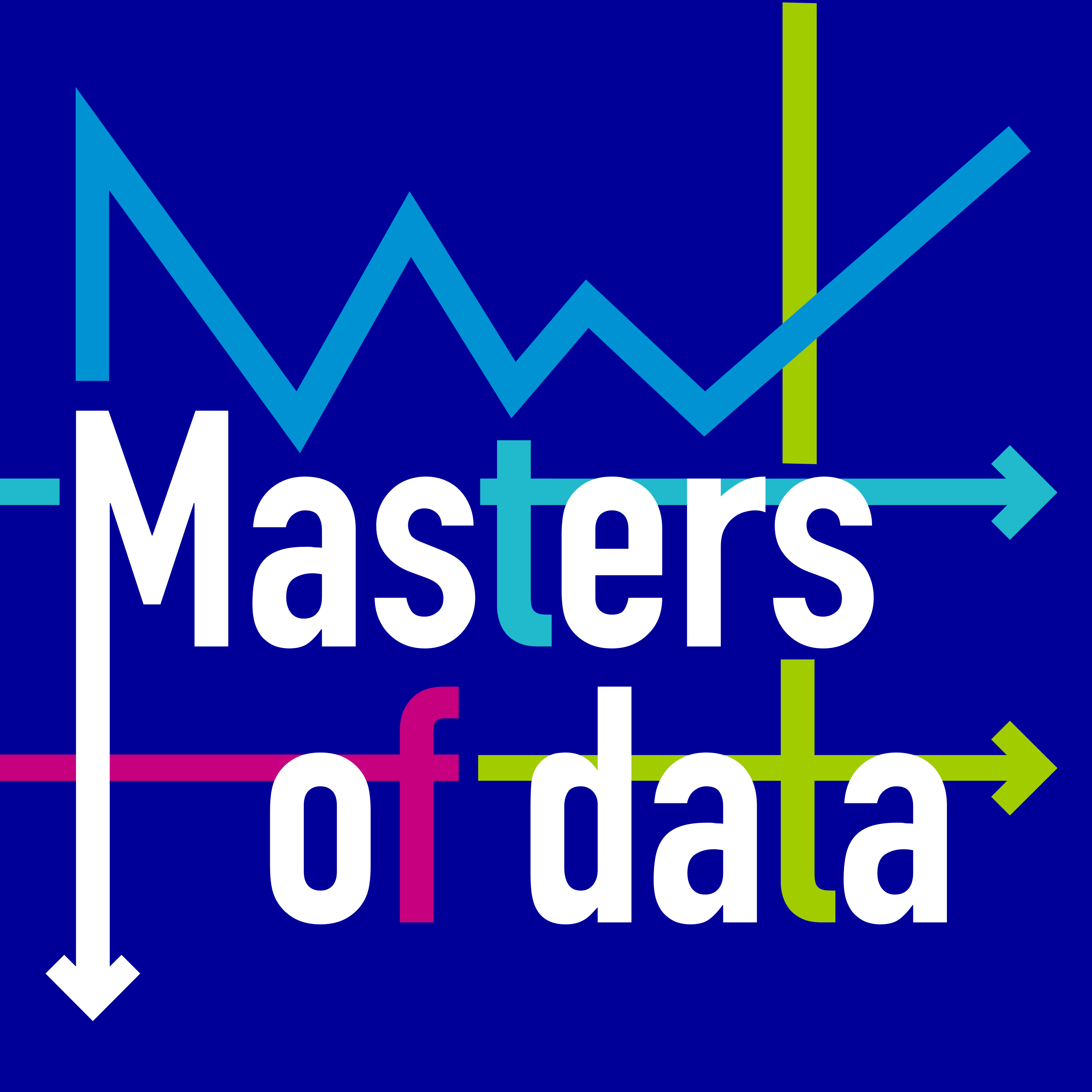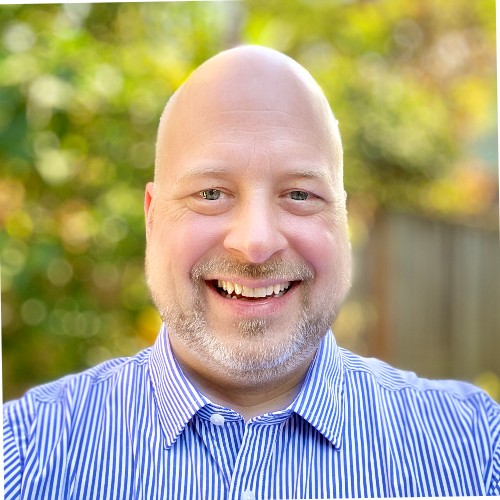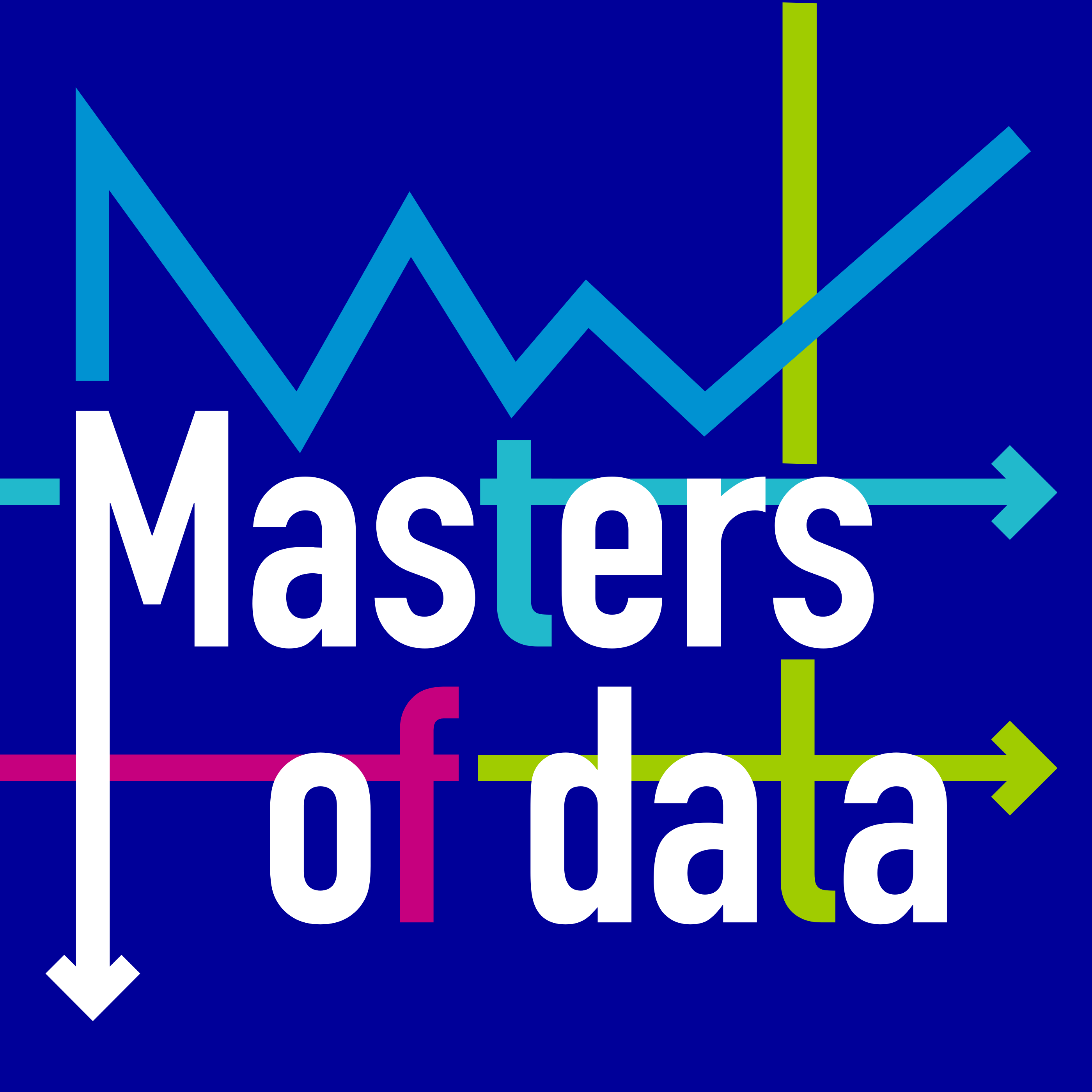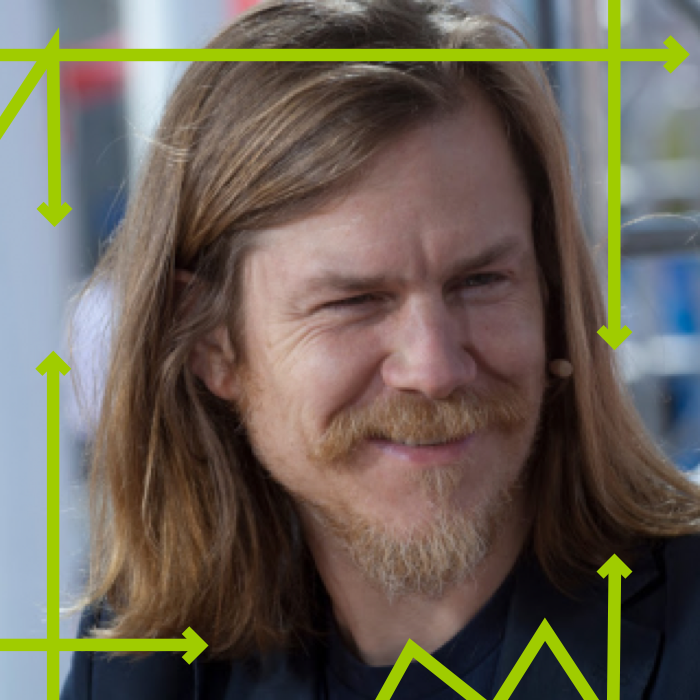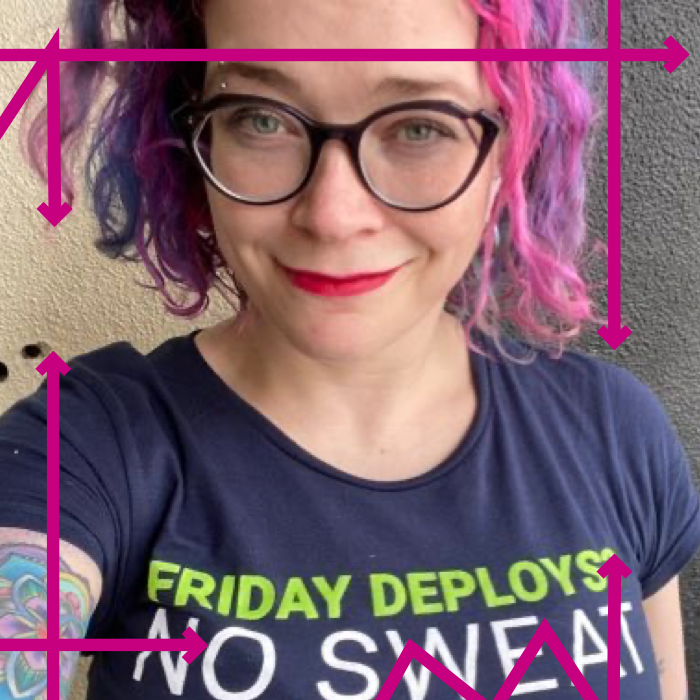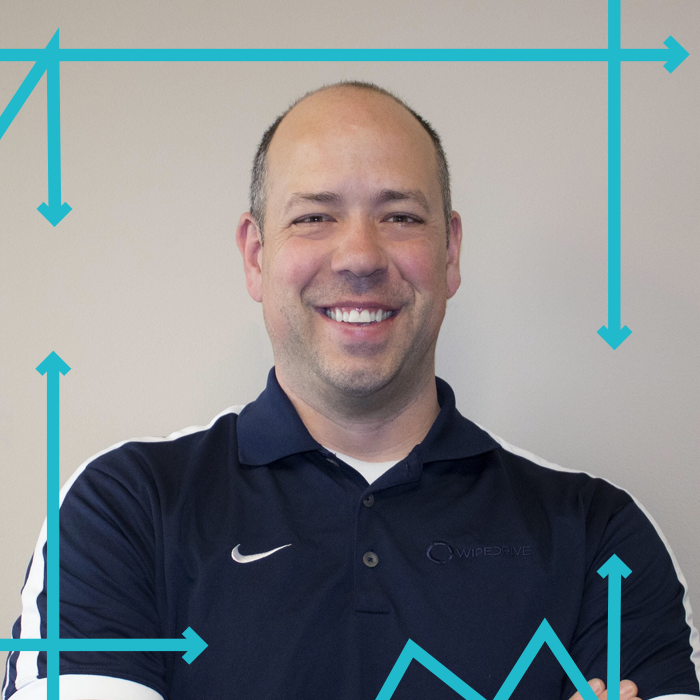Finding the Mythical Centrist (Guest: Charles Wheelan - Author of "Naked Economics" and "The Centrist Manifesto")
- 0.5
- 1
- 1.25
- 1.5
- 1.75
- 2
Ben: Welcome to the Masters of Data podcast. The podcast brings the human to data, and I'm your host, Ben Newton.
Ben: In this episode, I have the honor to talk with a wildly successful author who has now spawned a political movement that is trying to bridge the partisan divide in the United States. Charles Wheelan is the author of The Centrist Manifesto, which helped launch Unite America in 2013. He's a senior lecturer in economics at Dartmouth College. Charles even ran for Congress as a Democratic candidate in Illinois in 2009, which heavily influenced his writing of The Centrist Manifesto, as we'll see. He is also the author of the New York Times bestselling books Naked Economics, Naked Statistics, and Naked Money. I definitely suggest you read those. He even has a new book coming out on May 21, The Rationing, which is a political thriller, which I'm excited to read. Without any further ado, let's dig in.
Ben: Welcome everybody to another episode of the Masters of Data podcast, and I'm very excited about our guest today. You've heard a couple podcast episodes that we've done in and around politics and the data in politics and what really makes it tick and how to think about it. Our guest today, I think, brings a new and interesting viewpoint to this. Thank you for coming on the show, Charles. Charles Wheelan.
Charles: Good to be with you.
Ben: When I was going back and doing some more research after you and I started talking, your first big book, the Naked Economics ... Which, by the way, I'm from the south, and I was afraid of the way I say "naked".
Charles: Yeah, nikkid? Yeah.
Ben: So, please, people. Don't make fun of me. But that's okay, I'm okay with that. I actually look back at my Amazon history and I bought that book back in 2004, so it was kind of reaching back into my past. It's really cool to be able to connect with you, and since then, you wrote two more books in that same vein, Naked Statistics and Naked Money, and we're going to talk a bit more about what you did with The Centrist Manifesto. You've really been a prolific writer in the last decade and a half. What actually got you into writing books? You were working for The Economist before that, right?
Charles: Correct. I always wanted to write, even going back to elementary school. I was speechwriter coming out of Dartmouth, that was my first job, although even before that, I spent a year traveling after graduation. I took a gap year before people even called it a gap year, and during that time, I wrote for a newspaper here in New Hampshire and Vermont called The Valley News. I was their roving foreign correspondent. It was pre-internet, pre-digital photography, so I had to report on something of interest somewhere else in the world, write it longhand, take a roll of film, black and white, put it in a pouch, and mail it to White River Junction, Vermont, and the story had to still be topical whenever it arrived 10, 12, 14 days later.
Charles: That was two things. First, it definitely made me realize that I wanted to write about policy related things, and second, it made me realize that the world is a fascinating place. That was my entrée to writing. Then I became a speechwriter, which married the writing to politics. That was the first thing I did. Books came much later.
Ben: I have to say, I've been a long time Economist reader, so of all the things you've done, that was one of the things that stood out the most to me, because I think it must have been a pretty interesting place to write for.
Charles: I loved it, it was a great place. It's full of smart people, it is full of great editors, which I can tell anybody who's done any writing is the gift to anybody who's ever done a third or fourth draft. Because of the time change, I was in Chicago, you send things off and then pretty much go to bed, and then the next morning, they come back edited, and it is such a dream to have somebody send a piece back to you that's shorter and better, and you can't tell what they've changed. That's the essence of good editing. Your voice is still there, everything you wanted to say is still there. It's just tighter and better.
Ben: Wow, that's really neat. As a bit of a related tangent, one of the things I've always loved about The Economist too is the cartoons, and I just finished up the book by Kal, the guy who I think does a lot of the editable cartoons, his book Daggers Drawn. But he was talking about how he would have somebody fly over drawings to London. You couldn't fax him over anything. They would actually fly his editable cartoons over to London on a plane, and they would pay somebody just to take the plane trip while he was living in the US. So it's fascinating to see underneath the hood.
Charles: I actually am staring at my desk at a Kal cartoon that he wrote to accompany a Lexington column that I did on Mirror Daily. It's his caricature of the mayor planting a tree.
Ben: Oh, really?
Charles: I have it framed above my desk.
Ben: Oh, that's awesome. I love making that connection, 'cause I just have so much admiration for what you guys did at The Economist, and still do. If I'm trying to draw a line here, I'm sensing with a lot of your books, I think one of the things they do really well is taking complicated subjects and connecting it in a way that is actually applicable for a normal person in their life. You're taking something that is usually pretty esoteric, like economics or money theory, and actually connecting it to a person's everybody life. Is that why you decided to write books, because you just really wanted to do that in a fuller form?
Charles: Yes. Naked Economics was written as close to by accident as you can possibly get. Here's what happened. I was still writing for The Economist. I got a part-time gig teaching economics at Northwestern at the Medill School, which is their school for journalists. I needed a book on economics and finance that I could give to journalists that wasn't going to drown them in theory, graphs, charts, math. They just needed to know the big ideas. So I wanted to be able to walk into the room and say, here's a book about economics that tells you why it matters, gives you the intuitions so you'll be better reporters and writers, and you don't need to worry about calculus.
Charles: I assumed somebody had already written that book. I couldn't find it. I called my agent. I was trying to write a book on the gambling industry, which is something that I'd written a lot about with The Economist, because I started in 1997, when gambling was still illegal in most places, and by the early 2000s, you had Indian gaming, you had riverboats, so there was this explosion of gaming in my territory. That was what I was trying to write.
Charles: I couldn't sell it, but I called my agent and said, look, while I'm working on this other stuff, I've got to teach this class. Can you direct me to a book on economics that I can give to these journalists? There's this long pause. She said, no, but you're going to write it, and I'm going to read it, and we're going to call it Economics for Poets. But that eventually became Naked Economics. I assumed the book had already been written. It hadn't, so I wrote it.
Ben: Oh, I guess that was like the Physics for Poets class, didn't they do that at Princeton or something like that?
Charles: Yeah, it was for the humanities. I had always maintained, and later with statistics would maintain, that the problem about these disciplines was that they had been written by people who really love the math, and there is an elegance, obviously, in both economics and statistics, to the math. But the math is really just a way of communicating the ideas, and so I just wanted to write those ideas, shortcutting without the math.
Ben: That actually makes a lot of sense. I was originally a physics major in undergrad and grad school, and I think that was something I could always see being [inaudible 00:07:35]. Physics is a beautiful discipline, but not everybody wants to confuse it with the math, and I always thought that there were a couple really good lecturers that ever seen that just did a really good job with that. That actually makes a lot of sense. Were you already teaching at Dartmouth at that time, or ...
Charles: At that time, I was still with The Economist, and I was working on Naked Economics on the side, just as a note to put it in historical context. When I first started working on the book, we did not have a publication date, and therefore not a firm deadline. At some point, WW Norton picked a publication date and backwards mapped when they needed the text, and on September 10, 2001, a day I remember for obvious reasons, my editor, who is still my editor, incidentally, almost 20 years later, called and said, we're going to need the text in about six weeks.
Charles: So, obviously, September 11 happened the next day. All of The Economist coverage migrated to DC and New York. I didn't have much to write about in Chicago, so I then spent that little interim finishing the book.
Ben: Did you leave The Economist pretty soon after that, once the book got published?
Charles: I left The Economist in 2002, less 'cause the book got published and more because I wanted to continue to write, but also, I had a tension throughout my career. I really loved being a journalist, but I also had a hankering to actually do policy. In some ways, it actually felt too easy to just be on the sidelines reporting about how you could fix Social Security, knowing full well that the people in the arena were the ones doing it. So I left The Economist in 2002 to go work for a group called Chicago Metropolis 2020 that was a policy shop that was advocating for regional changes in Chicago around transportation, tax policy, housing, and other kinds of things. We were coming up with better ideas and then actually lobbying in Springfield to try to get them done.
Charles: For me, it was scratching this itch of actually being a participant in the policy process, rather than just writing about other people doing it.
Ben: So, fast forwarding, that leads me a little bit to ... You've written these great books which did really well. On the New York Times bestseller list, a lot of people read them and got value from them, and you decided to run for office. Why?
Charles: Okay. First, let me just say that one of my proudest moments was ... And it was just a moment ... It was about the 11 seconds during which Naked Statistics outsold 50 Shades of Grey on Amazon.
Ben: That's great.
Charles: It was a fleeting moment, but there's a great review in the New York Times, and I went on Amazon, and like I said, I think 50 Shades of Grey quickly regained the territory. But to write a book about statistics that outsells soft-core porn, that's a real accomplishment.
Ben: Maybe people were confusing the title a little bit, I don't know.
Charles: It could be, it could be. It could be that there was a lot of crossover between the two and then a lot of disappointed readers. I can't rule that out.
Charles: So, why did I run for Congress? In some ways, it does follow from what we just discussed, which is if you care a lot about policy, you really have to be willing to try to do it. I was teaching at the Harris School of Public Policy, the University of Chicago, in 2008, quite happily, still writing books, when Barack Obama was elected, November of 2008. People may or may not remember that almost immediately in November, after being elected but before Thanksgiving, he appointed Rahm Emanuel as his chief of staff. That affected me, because Rahm Emanuel was my Congressman. I was living on the north side of Chicago, and to the surprise of just about everybody in Chicago, Rahm took the job. Many people were thinking he was going to stay in the House and aspire to become Speaker of the House, that he was going to be there for life. It created an opening, an open seat, and therefore special election.
Charles: The fall of 2008, of course, was also close to the nadir of the financial crisis. So here I was, as somebody who writes about economics, cares about policy, in the depths of the worst financial crisis since the Great Depression, and I thought, and discussed with my wife, if I'm really serious about how important economics is, this would be a really good time to try to get into the arena. There's never going to be a better chance for me to get elected. I was a senior lecturer at the University of Chicago. Barack Obama had been a senior lecturer at the University of Chicago.
Charles: So that was the reason I jumped in. It was only a 10 week race because it was a special election, and I figure I can do just about anything for 10 weeks.
Ben: What was that experience like?
Charles: It was fascinating. Obviously for anybody who cares about policy, being on the other side, having to speak to voters, is a unique experience. It's one of those things that's hard to explain to anybody who hasn't done it. I would imagine it's like being in combat or something like that, where you can talk about it, read about it, but until you've done it, you're just not going to really get it on an emotional, visceral level. It certainly was one of the more physically and mentally exhausting things I've ever done, because it was a special election, so it was short. But that also means that you start with a sprint to the finish. There's no long lead up, slow fundraising. You're just raising as much money as you can, meeting as many people as you can, and running to the finish.
Charles: There are also a ton of candidates. I want to say there were 20 some candidates, between the Republicans, the Green Party candidates, and the Democrats. I was running in the Democratic primary. In the Democratic primary, I think I came in fifth. I think I was, if not the top, one of the top people who was not already an office holder. But overall, I certainly learned about ... It gave me more respect for politicians, in terms of how hard it is, even as also it made me a little more cynical about the process, because honestly, most people just aren't paying attention.
Ben: Yeah. You touched on a pretty deep thing there. You ran this campaign, you didn't win, but you learned really, from the inside, partly how the system works. Looking back at your progress here, when you work your way up to The Centrist Manifesto in 2013, was this an eye opening moment that put you on an inevitable path to starting going down that route to The Centrist Manifesto?
Charles: Yes. It clearly was the final piece that I needed to then finish that book.
Ben: Oh, so you had already started it?
Charles: I had already been thinking about ... I was already disaffected with the two parties. I was already feeling that something was missing and that a lot of voices were unrepresented. But the fact that I decided I would never be able to win a Democratic primary in Chicago, as somebody who really isn't that far to the ... I lean left, I care a lot about social justice issues, I care a lot about climate change. But I also, at that time or shortly thereafter, my wife became a charter school teacher, and it was very clear that as someone married to a charter school teacher, I can't win a Democratic primary. That just seemed unfortunate, given the positive data on charter schools for poor minority kids.
Charles: Before that, when I was a speechwriter, I was writing for a New England governor who was a moderate Republican, the old breed of New England Republicans. Pro-choice, investing heavily in education and job training. Over the course of that 15 year period, the Republicans drift to a place that's not recognizable to me from a New England standpoint, I realize I can't win as a Democrat either, and that was the moment of realization that, wow, there's not a political place for me.
Charles: Meanwhile, as a policy person, I realized that most of the problems that we care about really require solutions that draw from the tool kits of both parties. I have a great respect for markets. I have a great respect for personal responsibility, small business, a lot of the things that the traditional Republican Party cared about, including trade and immigration and so on. Obviously, my heart lies with the Democratic Party. I think we've got to do much more around inequality, bringing up those who have a bad deal in life, and that neither party was delivering everything that I thought was important. That's essentially what the book laid out.
Ben: So you were already thinking this way, and I think the way you describe it resonates for a lot of people. When I was looking through your background and some of the description of Unite America, which we'll talk about in just a minute, one of the things it seemed to indicate was this ... And honestly, I had to go back and look this up, but the Simpson-Bowles commission about improving our budget process and getting us back to basic ... reducing debt, how that failed, and the whole partisan debt sealing, all that kind of stuff that came out of that ... Was that the tipping point that just got you to actually finish the book up and get it out there in 2013, or is it more complicated than that?
Charles: It's really not more complicated than that. Simpson-Bowles was the point where I decided that the system was dangerously broken. I don't think I fully appreciated how broken, but I did correctly infer that the two parties had lost their ability to get stuff done. Let's go full policy wonk here. Simpson-Bowles, for those who don't remember it, was this effort, very wise to my mind, to try and wrestle the deficit under control by making it easier for the two parties to do some hard things.
Charles: Anybody who spends time around the US fiscal situation knows that the entitlement programs have to be fixed. Arguably, it should be more important for the left, 'cause if we don't fix them, they're going to collapse. But we've got to do something about Social Security given the demographic profile of the country, we've got to do something around Medicare given rising healthcare costs. Those are hard things for Democrats to do. In most Democratic primaries, the candidate will promise not to touch entitlements, and at that point, you've essentially promised not to deal with the US fiscal situation.
Charles: Meanwhile, anybody who looks at the same data with an honest eye knows that you cannot fix the fiscal situation, even with entitlement reform, without raising some new revenue. It doesn't necessarily have to be higher taxes. It could also be closing loopholes in the current tax code. But the same tax barriers are going to have to generate more revenue. That is a hard thing for Republicans to do. They typically run, in some cases, are demanded to run if they sign the no tax pledge, against any new revenue increases.
Charles: In the primaries, usually both candidates have forsworn the things that they have to do to come to a fiscal compromise. Simpson-Bowles comes along, it's a commission made up of some elected members of Congress from each party. The idea is that they would make the hard decisions, make some tough recommendations. Raising the gas tax, capping total revenue as a percentage of GDP, raising the retirement age on Social Security, and some other things. Then they would take it back to Congress for an up or down vote. Therefore, Congress couldn't meddle with the details. They could say, oh boy, I really don't like a lot of the stuff in here, but in total, I think it makes sense. I'm going to hold my nose and vote for it.
Charles: Even that process failed. That was when I decided that Congress really was not going to be capable with dealing with hard issues, whether it was climate change, the fiscal situation, infrastructure, immigration, all the things that we've see government struggling with ever since.
Ben: Like we were talking about before, I think one line that I said I've seen through a lot of what you've done is taking these complicated subjects and connecting with a person that may not be in the middle of all this. Do you feel like that's what you were trying to do with The Centrist Manifesto too, is take this very biased discussion around ... is there a center or not, and you're basically trying to bowl that down in a way that an average person could read and understand? Am I picking that out right?
Charles: Yes. I also tried to do one other thing, and I think this was probably the hardest thing. I'm not sure I've been successful. It's to say that part of being a centrist is not splitting the difference on every issue. It's not necessarily saying, boy, the Republicans have an unreasonable view on this, and the Democrats have a different unreasonable view, so halfway between two unreasonable views must be a reasonable view. That is not necessarily the case.
Charles: What I was trying to articulate is that there are some really good ideas on both sides, and that we should pick and choose among them, and it may be that we go with the Republican support for charter schools, because the data tell us in urban areas, charter schools are doing better than regular public schools, and it may be that ... it is that the Democrats are right on climate change. Anybody who takes a risk adjusted approach to life knows that if there's a serious risk of climate change, which there is, then we ought to do something.
Charles: So I don't want to do halfway between nothing and something. I want to do something. What I was trying to get across is that neither party has a monopoly on the tools to govern the way we need to govern. Creating some political movement in the center should empower people to choose the ideas that work best from both sides using data, by the way, to get back to the theme of your podcast, to help inform those decisions.
Ben: I think that makes a lot of sense, and I would expect that that would appeal to people. I did like one quote in the book where you talked about, the key is to mobilize America's inner pragmatism, and I think that's a big part of what it means to be data driven. If you look at the data and you're trying to make an intelligent decision based off of that, not just based off of excitement and passion. It also has to be based off of, here's what the data says. We've got to make an intelligent decision based off of that.
Charles: Yeah. I think the problem is since I wrote the book, things have gotten even worse, far worse than I think I even imagined possible. I hoped that the partisanship would cause us to hit bottom, realize it wasn't working, and then reinvent ourselves. Instead, we're caught in this negative feedback loop whereby the partisanship is so bad, the hostility of the two parties, which are really tribal, is so bad that people say, yeah. I don't like the partisanship. On the other hand, I dislike the other party so intensely that I'm going to dig my own trench deeper. So there's this irony whereby the partisanship that everybody claims to dislike has actually bred more partisanship.
Ben: Yeah, I think that describes pretty well what's going on, and you wrote the book describing this way of looking at the world, which can be pretty compelling, depending on where you're coming from, and you essentially went from words to action. You actually started Centrist Party, right, and that eventually became Unite America.
Charles: Correct. It was the Centrist Project at first, it was never a party, which is a less important distinction than you might think. It's an important legal distinction, because from a financing standpoint, in terms of ballot access, a whole bunch of stuff that people don't really care about unless you're an election lawyer ... What matters is that we've tried to create, with a decent amount of success, I would say now, a movement. Whether it's a party or not, or it becomes a party, is less important. But a movement, a group of people who are willing to put resources behind candidates and process reforms that will re-empower that political center, that will create the capacity, again, to solve problems in the way that we've been discussing.
Ben: Let's talk a little bit more specifically, because you wrote the book in 2013. You started Unite America in 2014 frame, right? And you've had a few years now to see how that's been going. What have you learned specifically about how this is resonating and what you're seeing? There's a lot of discussion about, there is no center, America is just polarized. There's a lot of that discussion going on, and I think if I understand you right, you're basically going directly against that and saying, no. Actually, this is what's really going on. What have you learned so far?
Charles: I do believe there is a center. Broadly defined, a group of people who are fed up with the partisanship, who even as they say they're fed up with it, may contribute to it because there's a dearth of choices in the center at present ... But there was a recent poll, I can't remember who did it, that about 60% of Americans describe themselves as part of an exhausted majority, that they just want to work together to get stuff done, and most issues poll that way as well. You can get a majority that actually ... Even Simpson-Bowles, those hard recommendations, had majority support. You can get majority support on some basic gun reforms, you can get majority support on a comprehensive immigration reform.
Charles: So both on a policy level and looking at the landscape, I do believe that there's a political middle to be had. I don't think it's easy to construct because of a lot of the forces at play. One of the common myths I like to puncture is political scientists in particularly will say there can't be a center, because everybody seems to vote for Republicans or Democrats, and even these independents and centrists must be closet partisans, 'cause they never seem to support independents. To which I usually reply, terrific! Who is the independent alternative in the 2016 presidential election?
Charles: If there are no independents who are credible centrists on the ballot, how in the world can you expect people who say they're centrists to support them? The analogy I use is lots of people say they like lobster, yet when they go to a wedding, they always seem to eat chicken breast. That's because there's no lobster on offer.
Charles: I think it's a little hard to actually infer what's going on. I think I would also couch it a different way and say if there's not a political center, then we're headed for a really rough patch. It doesn't necessarily have to be civil war, but it could be a cold civil war, because you've got two equally sized political blocs deeply dug in, and if there's no connective tissue between those two sides, we will not be able to govern ourselves. So if you don't believe there's a political center, describe for me what this country looks like in 10 years. I don't think that's a happy description.
Ben: Yeah, I think you make excellent points, and I'm sure that we could go on for hours talking about this particular subject. I'm a politics nut myself, I love learning more about it, but I think in particular, when it comes down to practicality, what are some practical things that you guys have been, I guess, with being the center pragmatists, what kind of practical, pragmatic things have you guys looked at that might actually help unblock some of these ... what everybody recognizes as highly partisan? I'm from North Carolina originally, and there's some areas that are always considered highly partisan. But if you actually look at the voting results, there's only a few percentage points off.
Charles: Right. Let's come back to North Carolina. Let me talk about the first negative lesson. We learned pretty resoundingly in 2018 that it's very hard to elect independents. Our prescription has always been to build a bloc in the middle of legislators, we call it the fulcrum strategy, of Republicans, Democrats, and independents. But people who are willing to band together who will have disproportionate influence in any legislative body by sticking together, in the same way that small parties in a coalition government in places like Israel will have disproportionate influence, because they can deny either party a majority. We want to do the same thing, only in the center.
Charles: A key part of that strategy in 2018 was recruiting and supporting independent candidates at both the state level, state legislative candidates, and also in statewide office. So, for governor, for US Senate, and so on. We probably had about 40 candidates whom we endorsed in 2018. Fewer than five won. What we learned is that even though there's a hankering for somebody in the center, it is still too big of a lift to elect independents, in part because nobody knows exactly what independent means. There's a real branding problem. In part because Republicans and Democrats each start with about a built in base of 30%. You can be in a coma and be a Democrat or Republican in some district, and you're going to get 30% of the votes if your name appears on the ballot with a D or an R next to it. As an independent, you start out with essentially zero. Maybe five, maybe 7%.
Charles: We have since changed our strategy in two ways. One is we're going to start endorsing and supporting moderate Republicans and Democrats. It's just easier to get them elected, and if they truly are moderate and centrist by disposition, they'll have the same impact, same moderating, connective impact in a legislative body. Second, we're focusing a lot on process reforms. Let's go back to North Carolina. Even though there's only a small percentage difference between Republicans and Democrats in the state, it is one of the most effectively gerrymandered states in the country. We are going to start supporting independent redistricting commissions, because gerrymandering has a particularly pernicious effect. It creates safe districts, which means that the people who hold those seats, their only likely challenger is from a more extreme member of their own party. If they're Republican, they're always looking over their right shoulder. If they're a Democrat, they're looking over their left.
Charles: Therefore, there's a huge disincentive to compromise in a way that is required to govern, and it breeds more extremist behavior in legislative bodies. So we're going to try and get rid of gerrymandering through independent redistricting commissions. There's been a fair bit of success at the state level there.
Charles: We're also going to support ranked choice voting, which is a little hard to explain, but once people get it, they get it. You would have an open primary. So anybody from any party participates in one primary. The top four vote getters advance to the final round, and then voters rank their choices from one to four. They don't have to have four choices, but there are up to four choices. The way it works is if anybody gets a straight up majority in that election, they win. If nobody gets a majority, whoever's the lowest vote getter gets thrown out. People who supported that person then get their second choice, and we'd keep repeating the process until some candidate gets a majority.
Ben: I remember when you and I first talked, you said to Google Jennifer Lawrence and ranked choice, and I do say that that is a good idea, because her video she did, I guess from ... The one I found was from Maine.
Charles: Yeah, she's done a couple. She's working with Represent Us, she is the best spokesperson for explaining that system, and it sounds arcane, but it's worth discussing why that system produces better outcomes. The first reason is it's much more hospitable for independents and small parties, because they no longer run the risk of being a spoiler. If you think about Howard Schultz, who has just been pilloried, mostly from the left ... A little bit as about Howard Schultz. Most of it, though, is about the possibility that he'll draw votes from a Democrat, and therefore elect Donald Trump.
Charles: If you have ranked choice voting, that problem goes away. If nobody gets a majority and Howard Schultz is the lowest vote getter, and most people who vote for him has a Democrat as their second choice, he gets eliminated. The Democrat gets his support. There's no spoiler effect. In 2000, if you had ranked choice voting in Florida, people who voted for Nader ... He gets, what, 5% of the vote? He gets eliminated. Their second choice is Gore. Gore gets a majority in the state, wins Florida, wins the electoral college. So the spoiler problem goes away, which creates more electoral competition.
Charles: The second, more subtle effect is there's a big incentive to be a nicer candidate, because it's in your strategic interest to be a lot of people's second choice. If you go lighting up the other candidates in a way that's very hostile, you're going to be nobody's second choice, and therefore you're likely to lose as the candidates are winnowed away.
Ben: When you've seen firsthand trying to explain or seen other people try to explain things like gerrymandering and the ranked choice voting design and things like that, do you feel like you're being able to penetrate and that people are starting to understand this, or is it still a long way off?
Charles: It's a little bit of both. There have been some great victories. The state of Maine passed ranked choice voting by referendum not once but twice. They passed it in referendum. The state legislature, which hates it because it's not great for Republicans and Democrats because they face more competition, essentially repealed the referendum, and then another referendum was held to overrule the legislature and that passed by an even greater margin. Once these things start to pass, then other states pay attention.
Charles: The same is true with independent redistricting. There was just a referendum in Minnesota in 2018 that created an independent commission to draw the legislative districts, take it out of whatever party controls the majority in the state legislature. So victories beget victories, and also, let's be honest here. When people like Jennifer Lawrence get involved and can explain it in an articulate way and bring a little star power, get beyond wonks like you and me, that's really good for the movement.
Ben: Yeah.
Charles: And there's a reason that Jennifer Lawrence does videos and you and I do audio.
Ben: What are you trying to say? I think that what you guys are doing at Unite America and what you specifically are doing with explaining this to the average person through your great writing, I think, is fantastic. And I'm really excited to see what you're doing going forward. And to actually put a bow on this, I was pleasantly surprised to find out that you are writing another book, but it not one that neatly necessarily fits into the other books that you've written. You're writing a novel. Tell me a little bit more about this.
Charles: It fits more neatly than you would think, actually. It comes out May 21. It's called The Rationing. It's a political thriller/satire that takes place about 10 years in the future. A lot of my political ideas found their way into the book. The president is an independent who's vowed to run only one term. Republican Party has broken up into two parties because of the schism between the Tea Party and the traditional Republicans, and all of that takes place against a backdrop where there's a new antibiotic called Dormagen, of which there's a shortage for about three weeks, and the government has to figure out during that shortage who gets what they have. The Chinese government helpfully says that they will offer the United States all the Dormagen we need, but only if we withdraw all of our forces from the South China Sea.
Ben: Wow.
Charles: So it's this giant political thriller that incorporates all the thinking that I've been doing about the current state of politics, and projects forward.
Ben: So you take the ideas and insert some good old fashioned drama in, international politics and spying and all that kind of thing in there, to make it more exciting?
Charles: Yeah. And also to be honest, it just soothed a lot of my frustrations, to be able to just sit down and make things up, over which I had complete control.
Ben: I was going to ask that, because this is at least one way you can spell out what you would like to happen.
Charles: Exactly, this is where my candidates win if I'm writing the book. And this fiction.
Ben: I think it's great, and I'm actually really excited about that, and I think for the people listening, we'll put links to all the great things that Charles has written, and particularly this new book coming out. I'd love to reconnect with you once the book's been out a little while to see how it's going and see how the movement's going, particularly closer to the next election. So we should bring you back in.
Charles: That would be great, 'cause there are going to be a lot of things going on. For all the attention that's going to be lavished on the presidential race, there's a lot happening at the state level as well. Both referendums ... State legislatures are enormously important. So, yes. I would love to come back and update you on what I hope will be lots of progress on the Unite America front.
Ben: Absolutely. We'll pencil that in right now. Thanks, everybody, for listening, and thank you, Charles, for coming on, so much. We really appreciated having you here. And everybody, rate us on iTunes or your favorite podcasting app. Check us out, subscribe, let other people know, and look for your next episode in your feed. Thanks everybody for listening.
Speaker 3: Masters of Data is brought to you by Sumo Logic. Sumo Logic is a cloud native machine data analytics perfectly, delivering real time continuous intelligence as a service to build, run, and secure modern applications. Sumo Logic empowers the people who power modern business. For more information, go to sumologic.com. For more on Masters of Data, go to mastersofdata.com and subscribe, and spread the word by rating us on iTunes or your favorite podcast app.
DESCRIPTION
New York Times Best-Selling Author Charles Wheelan describes his journey from economics writer to his search for the political middle in the United States.
Charles is the author of Centrist Manifesto, which helped launch Unite America in 2013. He is a Senior Lecturer in Economics at Dartmouth College. Charles formerly ran for Congress as a Democratic candidate in Illinois in 2009. He is the author of the New York Times bestselling books Naked Economics, Naked Statistics and Naked Money. He also has a new book coming out on May 21 - “The Rationing” which is Political Thriller.
